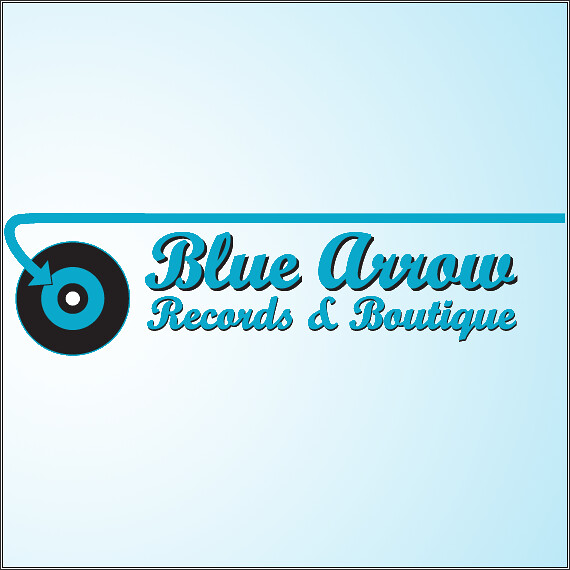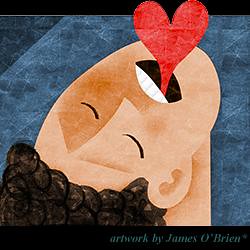In 1978, Jonathan was attending a concert of the Troggs in Boston. The opening act were the Real Kids and the interview is happening just after their set. The Troggs can be heard warming up in the background and Jonathan is announcing his new album to be released, "back in your Life". He has not found the New teller yet ...
you can listen to it by clicking the title of this message
Tuesday, November 27
Friday, November 9
More unreleased Modern Lovers from 1971 and 73
When you think you have absolutely everything ever released by the Modern Lovers, there is something new just lurking around the corner...
We got the 71 Stonehenge Ipswich one month ago and out of the closet comes this other one which could be called "More Songs of Rememberance " as it includes demos from 71 and 73 plus unreleased parts of the Harvard live set already well exploited in the the two Longbranch CDs and in the Precise Modern Lovers one.

There are five demos :
1. Girlfriend (Cale production of April '72 with John Cale on Mellotron, according to Doug C., the expert on Modern Lovers)
2. Modern World (Kim Fowley Sept. 73 session)
3. Ride down on the highway (Fall '71 Intermedia demo.)
4. A Plea For Tenderness (Kim Fowley Sept. 73 session)
5. Hospital (Kim Fowley Sept. 73 session).
then are some missing Harvard mixer songs from 71, existing on bootleg tapes (see Bob's nerdy page) but with a better sound here, also Bob had attributed some of these songs to another gig "Cambridge Boathouse 1973").
Live - Harvard University 1971:
6. She Cracked
7. Astral Plane
8. Someone I Care About
9. Hospital
10. I'm Straight
11. Cambridge Clown
12. Fly Into The Mystery
13. Such Loneliness
14. Womanhood
15. Dignified & Old
16. Unknown Instrumental
As you would have guessed these recordings are available on Dimeadozen.
Question, are there more songs ?
We got the 71 Stonehenge Ipswich one month ago and out of the closet comes this other one which could be called "More Songs of Rememberance " as it includes demos from 71 and 73 plus unreleased parts of the Harvard live set already well exploited in the the two Longbranch CDs and in the Precise Modern Lovers one.

There are five demos :
1. Girlfriend (Cale production of April '72 with John Cale on Mellotron, according to Doug C., the expert on Modern Lovers)
2. Modern World (Kim Fowley Sept. 73 session)
3. Ride down on the highway (Fall '71 Intermedia demo.)
4. A Plea For Tenderness (Kim Fowley Sept. 73 session)
5. Hospital (Kim Fowley Sept. 73 session).
then are some missing Harvard mixer songs from 71, existing on bootleg tapes (see Bob's nerdy page) but with a better sound here, also Bob had attributed some of these songs to another gig "Cambridge Boathouse 1973").
Live - Harvard University 1971:
6. She Cracked
7. Astral Plane
8. Someone I Care About
9. Hospital
10. I'm Straight
11. Cambridge Clown
12. Fly Into The Mystery
13. Such Loneliness
14. Womanhood
15. Dignified & Old
16. Unknown Instrumental
As you would have guessed these recordings are available on Dimeadozen.
Question, are there more songs ?
I Am Not Hippy Johnny
How Jonathan Richman used his outsider status to revolutionize rock and roll
BY TONY MICHELS
 (From Guilt & Pleasure 6: The Sound Issue)
(From Guilt & Pleasure 6: The Sound Issue)
I then realized what my father had said earlier, in the ’50s: “You’re not Jewish, you’re not in the Mafia, you’re not black, and you’re not a hillbilly. Why the fuck do you think you can be in the music business?”
— Interview with Kim Fowley, Ugly Things magazine, 2001
During the early 1970s, Jonathan Richman and his band the Modern Lovers launched a small revolt against the rock world. In a period when rock music had become heavy, mellow, ponderous, and technical — sometimes all at once — the Modern Lovers stood for raw simplicity. They wanted nothing to do with meandering blues jams or ten-minute drum solos or trippy sound effects or forty-foot Marshall amps. Stark, energetic rock and roll was what they played. In his oddly nasal voice, Richman sang about girls, neon signs, highways, and other things he loved. He also sang about things he hated: long hair, bell-bottoms, emotional detachment, and drugs. Within Richman’s idiosyncratic mind, an unlikely assortment of bands — from the Velvet Underground to the Beach Boys to the Stooges to Question Mark and the Mysterians — seemed to coexist happily until he and the Modern Lovers reconfigured them into something better.
Writers and musicians alike have rightly credited Richman as a forerunner of the punk revolution. His minimalism, defiance toward everything “hip,” and knack for writing oddball lyrics (his observation that “Pablo Picasso was never called an asshole” will remain immortal) helped to establish the fundamentals of punk. The Sex Pistols, the Ramones, and many others have acknowledged their debt.
But Richman can also be viewed as one in a line of Jews who exercised a defining influence on rock and roll between the 1950s and 1970s. Jerry Leiber and Mike Stoller, Phil Spector, Bob Dylan, and Lou Reed (Richman’s main musical hero) immediately come to mind. True, most musicians of Jewish background — and quite likely Richman himself — would object to being classified as Jewish musicians. They didn’t set out to create Jewish music in whatever form. On the contrary: they usually embraced the music of other groups, especially black music. Why should they be pigeonholed by an accidental fact of birth? Yet one can’t help but notice, as Kim Fowley’s father did in the 1950s, the high number of Jews who populated the music business. And then one can’t help but wonder how their Jewish backgrounds might have been relevant to their music.
read the rest backstage>>
Thank you to Tony Michels, Shaina Feinberg at Guilt & Pleasure, and to Devon!
BY TONY MICHELS
 (From Guilt & Pleasure 6: The Sound Issue)
(From Guilt & Pleasure 6: The Sound Issue)I then realized what my father had said earlier, in the ’50s: “You’re not Jewish, you’re not in the Mafia, you’re not black, and you’re not a hillbilly. Why the fuck do you think you can be in the music business?”
— Interview with Kim Fowley, Ugly Things magazine, 2001
During the early 1970s, Jonathan Richman and his band the Modern Lovers launched a small revolt against the rock world. In a period when rock music had become heavy, mellow, ponderous, and technical — sometimes all at once — the Modern Lovers stood for raw simplicity. They wanted nothing to do with meandering blues jams or ten-minute drum solos or trippy sound effects or forty-foot Marshall amps. Stark, energetic rock and roll was what they played. In his oddly nasal voice, Richman sang about girls, neon signs, highways, and other things he loved. He also sang about things he hated: long hair, bell-bottoms, emotional detachment, and drugs. Within Richman’s idiosyncratic mind, an unlikely assortment of bands — from the Velvet Underground to the Beach Boys to the Stooges to Question Mark and the Mysterians — seemed to coexist happily until he and the Modern Lovers reconfigured them into something better.
Writers and musicians alike have rightly credited Richman as a forerunner of the punk revolution. His minimalism, defiance toward everything “hip,” and knack for writing oddball lyrics (his observation that “Pablo Picasso was never called an asshole” will remain immortal) helped to establish the fundamentals of punk. The Sex Pistols, the Ramones, and many others have acknowledged their debt.
But Richman can also be viewed as one in a line of Jews who exercised a defining influence on rock and roll between the 1950s and 1970s. Jerry Leiber and Mike Stoller, Phil Spector, Bob Dylan, and Lou Reed (Richman’s main musical hero) immediately come to mind. True, most musicians of Jewish background — and quite likely Richman himself — would object to being classified as Jewish musicians. They didn’t set out to create Jewish music in whatever form. On the contrary: they usually embraced the music of other groups, especially black music. Why should they be pigeonholed by an accidental fact of birth? Yet one can’t help but notice, as Kim Fowley’s father did in the 1950s, the high number of Jews who populated the music business. And then one can’t help but wonder how their Jewish backgrounds might have been relevant to their music.
read the rest backstage>>
Thank you to Tony Michels, Shaina Feinberg at Guilt & Pleasure, and to Devon!
Wednesday, November 7
Gary Lucas & Gods and Monsters: Coming Clean

Gods and Monsters in Amsterdam, May 2007: Jerry Harrison, Ernie Brooks, Jason Candler, Billy Ficca, Gary Lucas (Photo by Arjen Veldt)
Psychedelic art-rock guitar virtuoso and man-of-many-hats Gary Lucas has a colorful history (if you don't know it, read about it here). His latest album is Coming Clean with his band Gods and Monsters- which includes former Modern Lovers Ernie Brooks on bass, and Jerry Harrison on keyboards and production duties; along with Billy Ficca (Television) and Jonathan Kane (Swans) on drums. David Johansen drops in to sing a song ("One Man's Meat"), and the CD ends with a tribute to former God and Monster Jeff Buckley ("Mojo Pin" and "Dream of the Wild Horses").
Gary Lucas & Gods and Monsters frequently perform at Bowery Poetry Club in New York City. Their recent appearance (2 Nov) was for a special "Day of the Dead" show combining music with surrealistic film. (read more here)
➔ update: nyctaper recorded this show
Gary Lucas
Gods and Monsters: Coming Clean@ MySpace (listen)
Gary Lucas@ MySpace (tour schedule)
Bowery Poetry Club
Gary Lucas: Sounds of the Surreal
Gary Lucas: Monsters from the Id
(Description from YouTube): "Legendary left-field guitarist Lucas" (The Guardian) plays his original solo guitar score for the 1912 Russian silent surrealist classic "The Cameraman's Revenge" (Ladislaw Starewicz), recorded live in Richmond Virginia at the James River Film Festival 3/25/06. Part of his "Sounds of the Surreal" silent film project, which includes original solo guitar scores played live to accompany Rene Clair's "En'Tracte" and Fernand Leger's "Ballet Mecanique".
opening for The Freewheeling Yo La Tengo
A review of the recent show (1 Nov) in San Francisco at the Palace of Fine Arts, opening for The Freewheeling Yo La Tengo, from Hippies Are Dead:
Richman's set was ultimately a unique blend of singer-songwriter melodies, social commentary, and comedy act. It was vastly different from his output with the Modern Lovers, but pretty much a "par for the course" performance for those familiar with his more recent work. "Par for the course" in this case was no mean feat, and Richman delivered a great set of sweet tunes. His performance was compelling enough that it even demanded an encore, which is unusual for an opener, to say the least. (read more & pics)
Yo La Tengo lately have been heard to be covering "New Teller" (read more in Variety)
Richman's set was ultimately a unique blend of singer-songwriter melodies, social commentary, and comedy act. It was vastly different from his output with the Modern Lovers, but pretty much a "par for the course" performance for those familiar with his more recent work. "Par for the course" in this case was no mean feat, and Richman delivered a great set of sweet tunes. His performance was compelling enough that it even demanded an encore, which is unusual for an opener, to say the least. (read more & pics)
Yo La Tengo lately have been heard to be covering "New Teller" (read more in Variety)
Subscribe to:
Comments (Atom)



